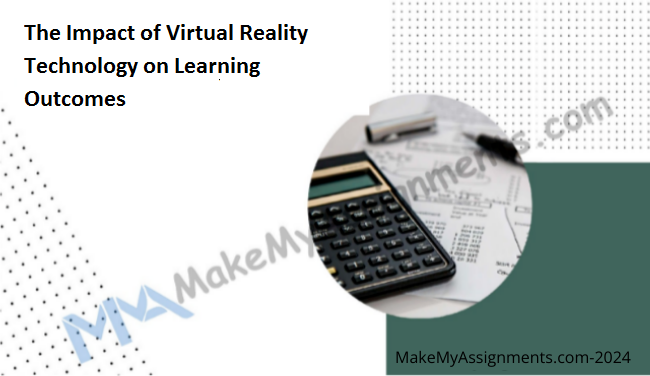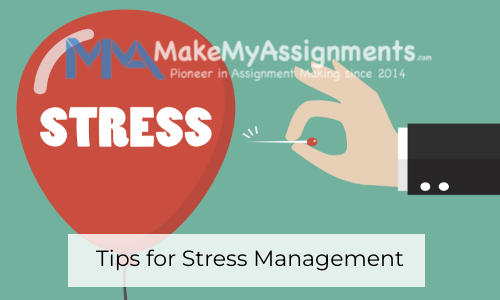
The Impact of Virtual Reality Technology on Learning Outcomes
In recent years, the rapid advancement of technology has significantly transformed various aspects of our lives, including education. One such technological innovation that has gained considerable attention is virtual reality (VR). VR has revolutionized the way we perceive and interact with digital environments, offering immersive experiences that were once only imaginable. In the realm of education, VR holds the promise of enhancing learning outcomes by providing students with immersive, interactive, and engaging learning experiences. This blog delves into the impact of virtual reality technology on learning outcomes, exploring its benefits, challenges, and potential applications in educational settings.

Enhanced Engagement and Immersion
One of the key advantages of virtual reality technology in education is its ability to create immersive learning environments. Unlike traditional methods that rely on textbooks or lectures, VR transports students into realistic simulations where they can actively engage with the content. Whether it’s exploring ancient civilizations, dissecting a virtual frog, or conducting science experiments in a simulated laboratory, VR offers an unparalleled level of immersion that captures students’ attention and fosters curiosity.
Improved Retention and Understanding
Research has shown that immersive experiences facilitated by VR can lead to better retention and understanding of complex concepts. By allowing students to interact with digital content in three-dimensional space, VR stimulates multiple senses, which enhances cognitive processing and memory retention. For example, medical students using VR simulations for surgical training have reported higher levels of confidence and skill mastery compared to traditional training methods. Similarly, students studying subjects like physics or chemistry can visualize abstract concepts more effectively through VR simulations, leading to deeper comprehension and long-term retention of knowledge.
Personalized and Adaptive Learning
Another advantage of VR technology is its potential to support personalized and adaptive learning experiences. With VR, educators can tailor learning activities to meet the individual needs and preferences of each student. By tracking students’ interactions within virtual environments, educators can gather valuable data on their learning styles, strengths, and areas for improvement. This data can then be used to customize learning experiences, providing targeted interventions and scaffolding to support students’ learning journeys. Additionally, VR platforms can incorporate adaptive algorithms that adjust the difficulty level of tasks based on students’ performance, ensuring that they are appropriately challenged and engaged.
Overcoming Physical Limitations
Virtual reality technology has the power to break down physical barriers and provide access to educational opportunities for students with disabilities or limitations. For students with mobility impairments, VR can offer virtual field trips to inaccessible locations, allowing them to explore museums, historical sites, or natural wonders from the comfort of their classrooms. Similarly, students with visual or auditory impairments can benefit from VR experiences that leverage tactile feedback or audio cues to convey information in alternative formats. By making learning more inclusive and accessible, VR technology has the potential to empower students of all abilities to participate fully in educational experiences.
Challenges and Considerations
While virtual reality holds immense promise for enhancing learning outcomes, it is not without its challenges and considerations. Cost and access are significant barriers that may limit widespread adoption of VR technology in educational settings. High-quality VR hardware and software can be expensive, making it difficult for schools with limited resources to invest in these tools. Moreover, there may be concerns regarding the safety and ethical implications of exposing students to immersive virtual environments, particularly for younger learners. Educators and policymakers must carefully consider these factors and work towards addressing them to ensure equitable access to VR technology for all students.
MakeMyAssignments (MMA) is committed to providing innovative solutions to enhance students’ academic experiences. In line with this commitment, MMA recognizes the transformative potential of virtual reality (VR) technology in education and aims to integrate VR into its platform to support students in achieving better learning outcomes. By leveraging VR technology, MMA can offer students immersive, interactive, and personalized learning experiences that go beyond traditional methods. Let’s explore how MakeMyAssignments can harness VR to assist students in maximizing the benefits of this groundbreaking technology.
Immersive Learning Modules
MakeMyAssignments can develop immersive learning modules using VR technology, allowing students to explore complex concepts in a realistic and engaging manner. Whether it’s history, science, mathematics, or any other subject, MMA can create VR simulations that bring textbook material to life. For example, students studying history can virtually visit historical landmarks, witness pivotal events, and interact with historical figures, gaining a deeper understanding of the subject matter. Similarly, students learning biology can embark on virtual field trips to ecosystems around the world, observing wildlife and ecosystems up close. These immersive learning modules provide students with hands-on experiences that foster curiosity, critical thinking, and knowledge retention.
Personalized Learning Pathways
With MakeMyAssignments’ personalized learning platform, students can embark on individualized learning pathways tailored to their unique needs and preferences. By integrating VR technology into its platform, MMA can offer personalized VR experiences that adapt to each student’s learning style, pace, and proficiency level. For instance, students struggling with mathematical concepts can access VR simulations that provide step-by-step visualizations and interactive exercises to reinforce their understanding. Likewise, advanced learners can explore supplementary VR content that challenges them to apply their knowledge in real-world scenarios. By catering to diverse learning needs, MMA empowers students to take ownership of their learning journey and achieve academic success.
Collaborative Learning Environments
MakeMyAssignments can facilitate collaborative learning experiences through VR-enabled virtual classrooms and study groups. By connecting students from different geographic locations in a shared virtual space, MMA enables collaborative problem-solving, peer-to-peer tutoring, and group projects. For example, students working on a group assignment can meet in a virtual study room, where they can brainstorm ideas, share resources, and collaborate on documents in real-time. Additionally, MMA can host virtual seminars, guest lectures, and interactive workshops led by subject matter experts, enriching students’ learning experiences beyond the confines of the traditional classroom. Through collaborative VR environments, MMA fosters a sense of community and collective learning among students, enhancing their social and cognitive development.
Accessibility and Inclusivity
MakeMyAssignments is committed to ensuring that its educational resources are accessible to all students, including those with disabilities or limitations. By incorporating accessibility features into its VR experiences, MMA ensures that students of diverse abilities can fully participate in immersive learning activities. For example, MMA can integrate audio descriptions, tactile feedback, and customizable user interfaces to accommodate students with visual or auditory impairments. Additionally, MMA can provide alternative navigation options and input methods for students with mobility impairments, ensuring that they can navigate virtual environments with ease. By prioritizing accessibility and inclusivity, MMA ensures that all students have equal opportunities to benefit from VR-enhanced learning experiences.
MakeMyAssignments is poised to revolutionize education by harnessing the power of virtual reality technology to enhance learning outcomes for students. Through immersive learning modules, personalized learning pathways, collaborative environments, and accessibility features, MMA empowers students to engage with educational content in new and meaningful ways. By embracing VR technology, MakeMyAssignments reaffirms its commitment to innovation, excellence, and student success in the digital age.





